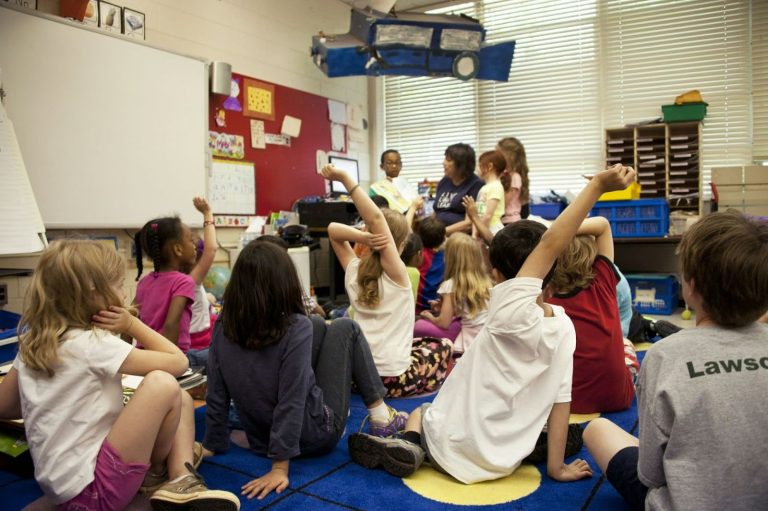The Meaning and Impact of Educational Excellence
Education is not the acquisition of facts, but the development of curiosity, character, and capability. Educational excellence means not just good grades, but the development of a whole person. Excellence in education doesn’t just result in knowledgeable students, but in thoughtful ones, with the critical skills, the empathy, and the flexibility to succeed in a changing world.
Why Educational Excellence Matters
- Empowers Individuals: A good education can end cycles of poverty and provide new opportunities. It fosters self-confidence and autonomy.
- Strengthens Societies: Educated societies are less crime-prone, healthier, and more economically robust.
- Drives Innovation: Educational excellence breeds creativity and analytical thinking, both necessary to address the world’s most pressing issues.
Core Elements of Excellence
- Qualified, Passionate Educators – Teachers are the key to learning. Their power to motivate, mentor, and push students is essential to any successful learning system.
- Access to Resources – Textbooks to technology, materials are key. Equitable access to materials provides every student with a chance to excel.
- Supportive Environments – Secure, inclusive, and well-designed environments provide a place where learners can focus, participate, and feel appreciated.
Building Blocks for Lifelong Success
A top-notch education doesn’t stop at graduation—it establishes a foundation that affects all aspects of life.
1. Academic Success
Literacy, numeracy, and problem-solving are the foundations of continued education and the majority of professional careers. Students who find academic success at school are likely to continue with higher education and achieve satisfying careers.
2. Personal Growth
Schooling defines us. Schools are where many children first learn:
- Collaboration and Communication
- Ethical Responsibility
- Self-Discipline and Time Management
These “soft skills” are as important as grades—they are the foundation of healthy relationships and workplace behavior.
3. Career Preparation
In the current economy, a good education frequently determines job prospects. Excellence in education involves vocational training, career counseling, and developing skills that meet the needs of the contemporary workforce.
4. Lifelong Learning
Perhaps above all, educational excellence inspires a love of learning. Students who are encouraged to ask, explore, and reflect will be more inclined to continue to learn throughout life—strengthening themselves to face new challenges and to continue growing.
Challenges and the Path Forward
Though the vision of excellence in education is clear, making it a reality everywhere is complicated. Schools worldwide are dealing with a range of obstacles such as a lack of funds, inequality, and outdated processes. Yet change is conceivable—and already underway in so many places.
Key Challenges
Educational Inequality: Not every child begins at the same starting line. Socioeconomic gaps, geographical distance, and institutional biases persist to stifle access.
Teacher Shortages: Inadequate trained and supported teachers compromise the quality of learning.
Outdated Curricula: Curricula in certain areas do not equip learners with the requirements of the contemporary world.
Solutions for a Brighter Future
Investment in Education – Governments and nongovernmental organizations need to give top priority to education budgets, particularly in disadvantaged areas.
Inclusive Policies – Education systems need to tackle and include varied learning needs, such as students with disabilities or language issues.
Innovative Pedagogy – Leveraging digital media, project work, and multidisciplinary education can more adequately equip students to deal with reality.
Community Participation – Students themselves, local leadership, and parents need to contribute to setting learning priorities.
A Lifelong Gift
Greatness in education isn’t something to be privileged—it is something to be given. It is the greatest investment any society can ever make, not for purely economic reasons, but for social advancement, international understanding, and for the fulfillment of human potential. By providing every child with an excellent education, we’re not merely educating children—we are creating a better world.
The Families and Communities’ Role
No school exists in isolation. Families, communities, and cultural values all contribute to fostering educational excellence.
Parental Involvement: Parents actively involved in their children’s learning help students achieve better academically and socially.
Mentorship Programs: Communities that provide tutoring, after-school programs, and career counseling enhance students’ outlook and motivation.
Lifelong Role Models: Children learn from the adults who surround them. Promoting lifelong learning among parents, caregivers, and community leaders helps instill educational values.
A Call to Action: What Can We Do?
As a teacher, parent, policymaker, or student, we all play a part in shaping and supporting education excellence. Here’s how we can make a difference:
Advocate for Educational Access – Join your voice with those who stand up for policies that make education accessible and equitable.
Support Local Schools – Volunteer, donate, or attend school events to bolster community relationships.
Encourage Curiosity – At home or at work, foster curiosity and creativity in youthful minds.
Commit to Lifelong Learning – Pursue your own learning, be it through reading, classes, or experiences, and encourage others to do the same.
Final Thought: Education Shapes Everything
Education is more than just building a career; it builds character, communities, and cultures. When we invest in the minds and hearts of our learners, we’re not only preparing them for exams; we’re preparing them for life.




